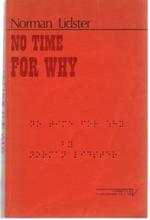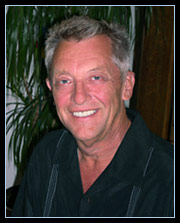He just got on with his life, and helped others do the same
 The following words are from an introductory chapter of a book that I someday hope to finish writing, which will be an anotated update of my Uncle Norman Lidster's autobiography (pictured right). As follows is basically a precis of my introductory chapter, and I was partially inspired to let this see the light of day thanks to some insights offered by blogger friend, Cathy a few days ago. In any case, these are basically my thoughts on a man who was arguably the most remarkable human being I have ever met.
The following words are from an introductory chapter of a book that I someday hope to finish writing, which will be an anotated update of my Uncle Norman Lidster's autobiography (pictured right). As follows is basically a precis of my introductory chapter, and I was partially inspired to let this see the light of day thanks to some insights offered by blogger friend, Cathy a few days ago. In any case, these are basically my thoughts on a man who was arguably the most remarkable human being I have ever met."Do you think Norman was able to have a relationship with a woman?"
Not intending to be vulgar or voyeuristic, I asked the question. Everybody wonders about such things, but nobody comes right out and asks. In my case, the thought came to mind for what I thought was a valid reason.
The person I asked was my father, the older brother of Norman Lidster, who
had died days before. The setting was a reception held following his funeral service at Christ Church Cathedral in Victoria, British Columbia.
This homely, neo-Gothic, unfinished-looking edifice was the choice for the service
because it wasn't far from Norman's residence of the prior 30 years, and he had periodically attended services there. It was also held there because Norman was a 'notable' in his own right, and it was believed there would be a goodly gathering for the service.
That belief was correct. The mourners and the curious came from all over to pay last respects to a man who could best be described as 'astonishing'. Even the good sisters of Mount St. Mary's Hospital, where Norman had lived for three decades had to receive Papal dispensation to attend the Anglican service -- a service for a man they had come to know, respect, and no doubt love during his years with them.
Back to the reception. I had asked the seemingly odd question for reasons that will become obvious. My father looked at me curiously. Sex, for a host of reasons, many of them my own, wasn't an area in which he and I ventured with any regularity. He wasn't a puritan, he and I simply didn't have that sort of 'buddy' relationship that lent itself to such discussions.
"Why did you ask?" he queried.
"Because of that woman over there," I said, nodding in the direction of a striking, stylish, affluent-looking redhead, of about 45, who was mingling with the large crowd of sherry-sippers at the reception. A bit bored, I had scoped out the parade. I had caught her eye. She had returned my gaze, smiled, and approached me.
"She came up to me and asked if I was Norman's brother," I told my father. "She asked me because she thought I looked like him. I pointed to you and said you were his brother, and that I was his nephew. She seemed very pleasant."
"And you thought she was good-looking, and wondered what her connection was, and maybe if she was his lover," Dad said, with an edge of sarcasm in his voice.
"Something like that," I replied. "I don't know, she just seemed kind of sad, and kind of devoted to him, so I thought of it. Maybe I'm sick. Maybe I read it all wrong. So, that was why I asked you. I thought maybe you and he had talked about that kind of stuff. You know, being brothers and all."
"No, we never really did. I don't know why. I guess we were just uncomfortable, or maybe I didn't want to know. But, it could be she was someone special. I don't know. He was as entitled to a private life as anybody else. But, if it was physically possible, and it might have been,
well, I guess I hope it was so. Maybe his life was a little more full than any of us knew."
And that was the end of that episode. Nothing more was ever heard from the redhead, so whoever she was to Norman can remain their own private connection. I have wondered about her periodically over the years. She would likely be in her 70s now.
Ultimately, whose business was it? Though, I confess I do like the idea that he was able to get laid on occasion. It makes him a bit more human to me.
I was in my mid-30s when Norman died in 1977. He died in his late 50s, which is not an advanced age in contemporary longevity, but it was a very
long haul for a man as afflicted as he was.
Norman was the 'rigid man.' Smashed to a physical shell by a ghastly course of rheumatoid arthritis that began in his late teens, and which progressed with agonizing brutality for years he was, by his late 20s, utterly immobile (except for limited movement in his jaw and a couple of fingers) and, with insult towelled onto injury, completely blind. He was a fine brain, and I'll suggest a soul -- a very large soul -- trapped inside a useless vessel.
He was also one of the most astonishing men I've ever known. An opinion that is shared with vast numbers of people who came to know Norman over the years. Periodically, in later life, when I was going through some personal difficulties (difficulties that were tiny in comparison with his), I thought of Norman, and speculated that it would be good to talk with him at that moment, to get a kind of reality-check, a metaphorical kick-in-the-ass from him. He was good at that, and he never did it from a "poor me" perspective.
Ultimately, Norman triumphed in his own way over this clinical cruelty, and it was likely his basic rebelliousness, and even waywardness that enabled, at least in part, that to happen. To ultimately be able to spit in the eye of the nefarious spirits that would drag him down, was triumph indeed. It was true courage. It was a victory of the human spirit.
The title of his bio, 'No Time for Why' very succinctly captures his spirit.
"I spent years cursing God," he told me once. "Why? I kept asking him. Why me? Eventually it came to me that I was wasting whatever life I had for something that couldn't be answered. So, I got on with it and found I was so busy that I truly had no time for 'why?' It kept me sane and lifted my depression."
Truly amazing was the guy. In later life, only able to move his pinky-finger, he would have a portable typewriter mounted on his chest, and he would pound out feature pieces for one of the Victoria newspapers. He was also interviewed on radio and television, and was fully current and aware of what was going on around him both in real life, and in terms of the culture of the day.
Once, when he was staying at his sister’s home, he was left alone with his niece (about 18 at the time, and a bit of a counterculture rebel) and her boyfriend. Norman called for her to come over to him.
“I don’t think you and your boyfriend should be smoking pot when you’ve been charged with looking after me,” he said. His niece, my cousin (who is now a respectable middle-aged matron), was shocked.
“How did you know?” she asked incredulously.
“I may be blind,” he said. “But I haven’t lost my sense of smell.”
Over the years I visited Norman many times. Norman would ask me questions about my life, and I would attempt to answer. The only thing that struck me with any impact when I was very young was how much his voice sounded like my father's. But, as I matured, I came to realize what a unique and remarkable man he was. No wonder the Archbishop of Canterbury made a special call on Norman when he visited Victoria, and no wonder the Pope gave that dispensation to the nuns who wanted to attend his funeral.
The thing was, Norman’s life was full. Full enough that if I came to call, he just might be out. He didn't lie around pining for somebody to visit. Indeed, as often as not, he wouldn't even be in his room at Mt. St. Mary's Hospital, he would be off out with one of his "pushers" -- the name that he whimsically gave to the regulars who took him to the park or elsewhere, in his specially designed wheelchair -- and we would have to either patiently wait for his return, or head out in the general direction he was believed to have been going. Secondly, we would usually leave after spending time with Norman, saying, "We really should go to see him more often, because it's such an uplifting thing to do."


8 Comments:
Ian, thank you for sharing Norman with us. He sounds as if he was a giant of a man ... someone you couldn't meet without experiencing some sort of inner change.
If you finish that book - make sure you let us know ...
Thank you!
What an interesting man. We could all learn a leson from him. Neat stuff!
Your friend,
Wendy
We all need more Norman's in our lives I think.
You've left me wanting more, Ian!
Ian, I can't even tell you how much I loved this story. He was truly an incredible man.
Its amazing the things one can do, if only they have the will to do so.
I hope to read more about him here.
Now, you have inspired me!
I am currently (2016) reading Norman's book and find it amazing. What a personality. Such a keen mind. Thank you for seeing this to print.
I was one of those 1960’s “pushers.” My pal Don and I were connected to Norman by Don’s mom, Jane Harding, a nurse and an amazing lady who co-ordinated many Victoria volunteer organizations and activities. We two teenage boys would take the bus downtown, walk to St. Mary’s at our set time, and trundle Norman out the door and over to the Legislature. Norman knew every turn, every doorway and doorman, and could distinguish the voices of all the MLA’s. He filled us in on the political issues of the day, and the strategic dynamics of the lively and oft combative interactions.
I remember reading “No Time For Why.” Certainly a most remarkable man.
I am now reading Norman's book, "No Time For Why," bought second hand at the James Bay bookstore in Victoria. He was an amazing person and his troubles make my own seem negligible to zero. He took inspiration from the smallest things, an example to us all re: the nature of gratitude. I might say he seemed like a true Buddhist, knowing the koan of his own life so well.
Post a Comment
Subscribe to Post Comments [Atom]
<< Home